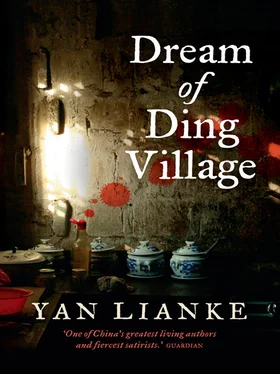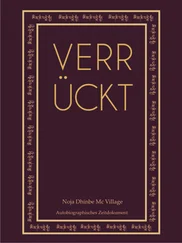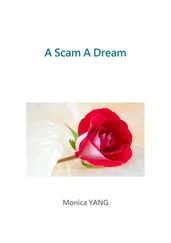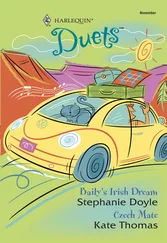‘As for your family . . ’ Dad paused, pretending to think. ‘Since your younger brother’s fever is already full-blown, I think I can manage to get him a coffin for 100 yuan, half the manufacturing cost.
The village party secretary gazed at my dad, tears of gratitude welling up in his eyes.
‘Now, the regulations say you’re not eligible for a coffin until you’ve been sick for at least three months, but you’re the village party secretary after all, one of our grassroots officials. That ought to count for something. Tell you what . . when I’m finished distributing the coffins, why don’t you pick one out for yourself at the same price? Just don’t let the folks in the village find out.’
The party secretary disappeared into another room. He emerged a moment later with 100-yuan notes, which he handed to my dad. Then, smiling, he went out to ring the bell, summoning the villagers to gather in the square to buy their coffins.
By noontime, Old Riverton was filled with shiny black caskets. Like its neighbour Ming Village, Old Riverton had become a coffin-town. The scent of wood and fresh lacquer rolled through the streets and alleyways, permeating every corner of the village. Now that they had their coffins, the inhabitants of Old Riverton, sick and well alike, could rest easy. At the very least, it was one less thing to worry about. Laughter and conversation, sounds that had all but died out over the last two years, were heard in the village once again.
3
Grandpa hadn’t seen his eldest son for more than two months. He wanted to see my dad, wanted to visit the house and tell him a few things, but if he went there and found my mother alone, it would be awkward. It wasn’t that Grandpa didn’t like his daughter-in-law, he just never knew what to say to her.
All day long, Grandpa thought about paying a visit to his son. Just before dusk, my uncle showed up at Grandpa’s door. The first words out of his mouth were: ‘Dad, Hui wants you to come over to the house for dinner. He has something to tell you.’
Without a moment’s hesitation, Grandpa accompanied Uncle to our family’s house. The gentle mid-spring sunshine cast a pleasant yellow glow on the white porcelain-tiled walls, reminding Grandpa of the homes and courtyards of Ming Village and Old Riverton, the places he had seen in his dream. The only difference was a patch of spicy mustard greens on the south end of our courtyard, where the chicken coop and the pig pen used to be. The plants were a deep, rich shade of green, each about as tall as a chopstick standing on end. Their leaves were the same shape as the leaves of the scholar tree, only thicker and less glossy, covered with a network of tender veins. The plants jostled for space, spilling luxuriantly into half the courtyard and filling the air with their pungent, intoxicating fragrance. Spicy mustard greens gave off a scent not unlike peppermint, but theirs was a cruder sort of smell, not as delicate or refined as peppermint. It was precisely this crudeness that made the county deputy governor love them so. They suited his taste. Naturally, it was for the deputy governor that my parents had planted them.
As Uncle led the way into the courtyard, the first thing that caught Grandpa’s eye was the enormous patch of spicy mustard greens. My mother, carrying a gourd filled with white flour, greeted Grandpa and Uncle on her way to the kitchen. ‘Hi, Dad,’ she said. ‘We’re having a treat for lunch today — noodles mixed with spicy mustard greens.’
My mother treated Grandpa as if nothing untoward had happened. It was just like it had been years ago, when she had first married into the family. My father also treated Grandpa as if there had never been any conflict between them. When he saw Grandpa at the door, he quickly composed his face into a smile, and pulled up a straight-backed chair with a comfortable cushion for Grandpa to sit on. The three men sat down together. Grandpa, Dad and Uncle: three corners of a triangle.
The kind reception unnerved Grandpa; he was uncomfortable at being treated so warmly by his son and daughter-in-law, when he felt so estranged from them. Flushing with embarrassment, he turned his head away and looked around the room. It was more or less as he remembered it. There were the same white-washed walls, a long red table along one wall, and a television and a sofa at opposite ends of the room. The television cabinet was red, its doors decorated with golden peonies.
Grandpa noticed a cobweb in one corner of the room. Usually my mother swept out cobwebs as soon as they appeared, but this one had fanned out from a corner of the ceiling to the top of the refrigerator. That one cobweb made the house seem different from before. For Grandpa, it was a sign that something had changed. Then he spied several large wooden trunks in a corner behind the door. He realized as soon as he saw them. His son really was moving away.
Grandpa couldn’t take his eyes off the wooden trunks.
‘I might as well tell you,’ said my dad, taking a drag of his cigarette, ‘we’re getting ready to move.’
Grandpa turned to stare. ‘Move where?’
Dad shifted his gaze uncomfortably. ‘First to the county capital. Then, when I’ve saved a little more money, to Kaifeng.’
‘Is it true you’re vice-chairman of the county task force on HIV and AIDS?’ Grandpa asked.
My dad looked pleased. ‘Oh, so you’ve heard?’
‘And is it true that you’ve been selling coffins in Ming Village and Old Riverton the last few days?’
Surprised, my dad removed the cigarette dangling from his mouth. ‘Where did you hear that?’
‘Never mind where I heard it. I’m asking you if it’s true.’
My dad’s expression hardened. He stared at Grandpa and said nothing.
‘Did you or didn’t you sell two truckloads of eighty coffins in Ming Village?’ Grandpa pressed. ‘And three truckloads of a hundred and ten coffins in Old Riverton?’
Astonishment was now thick upon my dad’s face, like a layer of dried mud that could crumble at any moment. His features had frozen into a look of shock, an expression that might never thaw. Father and sons sat stiffly, three points of a triangle. The sound of my mother making noodles in the kitchen drifted through the courtyard and into the house. The soft thud of dough sounded like someone thumping a beefy hand on the wall behind them. My dad abruptly stubbed out his cigarette, grinding the long stub beneath his shoe until all that was left were shards of tobacco and confetti bits of paper. He glanced at my uncle, then turned to Grandpa, moving his gaze from Grandpa’s face to his head of white hair.
‘Dad,’ he said. ‘Now that you know everything you need to, there’s no use talking about it any more. I just want to say one thing: no matter how badly you treat me, you’ll always be my father and I’ll always be your son. But there’s no way I can let my family go on living in this village. I’ve talked it over with my wife, and we’ve decided to give the house and everything in it to Liang. All we’re taking are our clothes. I know Liang hasn’t got much time left, but I think his wife will come back to him if she knows he’s got the house and the furniture. I can’t believe she’d pass up a chance to inherit all the family property. As for you. .’ He paused. ‘You can move with us to the city if you like, or you can stay here and look after Liang. When he’s gone, you can join us in the city and I’ll support you in your old age.’
That was all Dad had to say.
My uncle’s face was wet with tears of gratitude.
4
Grandpa lay tossing and turning in his bed. Try as he might, he couldn’t sleep. Since he’d left our family’s house earlier that day, his mind had been overwhelmed by thoughts of my dad selling coffins and planning to move his wife and son out of the village. Just thinking about his son trading in coffins made Grandpa wish he’d killed his first-born when he’d had the chance. Better that he were dead was the thought that kept Grandpa awake, and made his head ache. He suddenly remembered how feuding families on the plain would bury sticks outside their enemies’ houses as a curse. They’d take a twig from a willow or peach tree, sharpen one end and carve on it the name of the person they wished to die. Then, after smashing it against their enemy’s door or the wall of their house, they’d bury it deep in the ground as a curse against that person. Even if they knew that the person wouldn’t actually die, they still went through the motions. It might result in an early death, or an accident in which the cursed individual would break an arm or a leg, or lose a finger or toe.
Читать дальше












